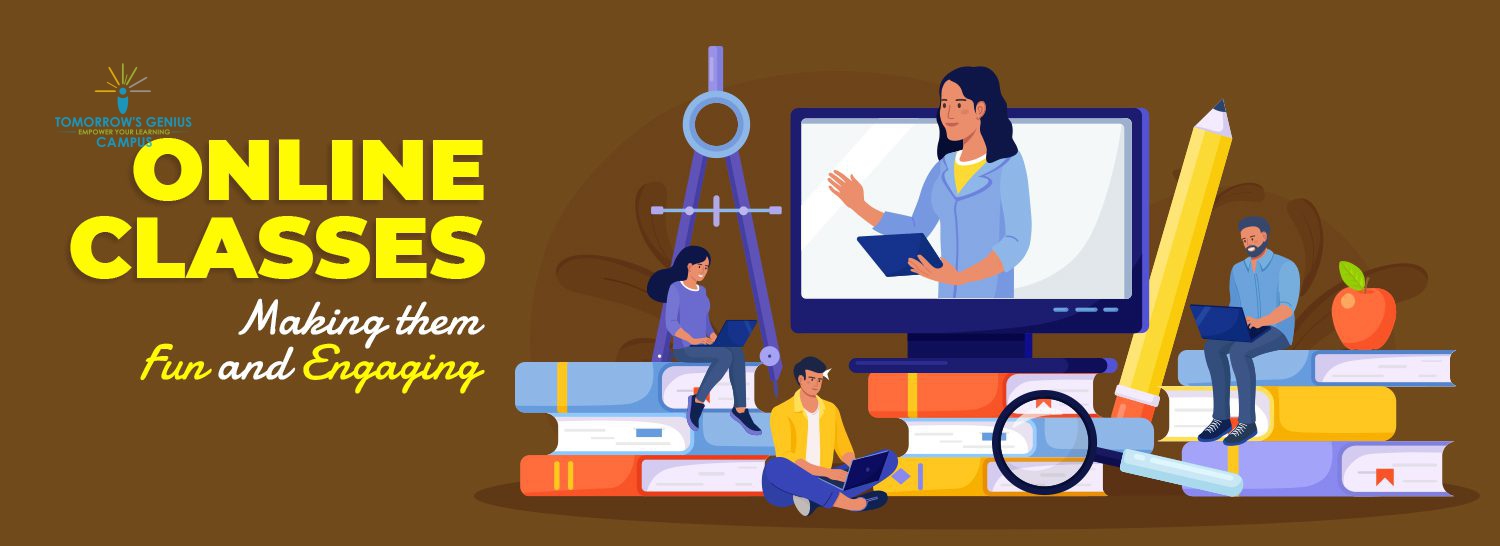Online Classes – Making Them Fun and Engaging
Online classes have become an integral and essential aspect of learning for students due to the digitalisation of education. Online courses provide many conveniences. These include access to a wide range of courses, the best tutors, and learning from the comfort of your home. All this contributes to low cost, which in turn saves time and money. Anybody can learn from anywhere in the world with the help of online classes. However, a lot of effort and thought is involved when creating courses that suit students’ needs.
Crafting an online course is more difficult than using the platform to learn or instruct. Both parents and children are drawn to the online course’s design. Some of the important features that parents and their children look for in online coaching classes include:
- The technology used
- The whiteboard, or,
- The way questions are answered in the lessons
When designing an online course, it is important to keep in mind the students that will be participating in it. Hence, the design must be easy to understand for all students in that classroom and have a natural flow. Be cautious while creating online courses to avoid some typical blunders instructors make that could cost you your clients.
4 online course design mistakes to avoid are:
1. Not including the learner
Studying at online coaching institutes often involves reading or watching videos, followed by essay writing or forum posting. Many educators use inquiry-based learning (IBL). This encourages students to research any content-related questions they may have, to make online lectures engaging and participatory. Implementing strategies to boost engagement can help online students turn virtual ties into real-world relationships. For example, using discussion boards in online training programmes improves participation from students. There are many things that can keep students engaged, increasing the rate of retention.
2. Decreased collaboration among students

The next step is to foster greater peer collaboration after integrating student engagement in the subject and with the teacher. Teachers frequently undervalue connection and teamwork because they think that working together in an online environment is challenging or impossible. Students who work together develop their mental clarity, making it easier for them to develop friendships with people from other countries. However, with the use of simple techniques, collaboration can be a seamless and beneficial method for creating courses.
3. Creating a complicated and cramped study structure
The amount of information instructors frequently need to cover in an online learning environment can seem uninviting to students. Courses that pack in too much theory and facts appear to be a failure with the new, expanding generation. Courses must have a distinct and unified structure allowing simple navigation to create a welcoming online environment. The usability and success of students can be greatly influenced by the course design. Micro-learning integration, a trend in online learning, is one method for attracting students’ attention. Planning backward is a valuable technique for creating learning modules. Instructors can review all the material they want to cover and then pick the topic sections.
4. Exclusion of reflection and revision from the course

Academic studies and outstanding teaching case studies demonstrate that a reflective practitioner is a successful practitioner. In order to enhance the learning environment for students, instructors employ a variety of revision techniques. Keeping a semester-wise detailed record of issues and students’ inputs are methods educators use to collect data used when creating courses. The best online classes offer one-on-one discussion forums to help students ask their queries without disruption. Online coaching classes provide flexibility and targeted attention.















Leave a Comment